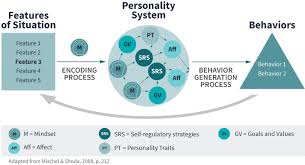Developing Leadership: Key Strategies for Success
Leadership is a crucial skill in today’s fast-paced and competitive world. Whether you are a seasoned executive or a budding entrepreneur, honing your leadership abilities is essential for driving success and achieving your goals. Here are some key strategies to help you develop and enhance your leadership skills:
Continuous Learning
Great leaders never stop learning. Stay curious, seek out new knowledge, and be open to feedback and constructive criticism. Take advantage of leadership development programs, workshops, seminars, and books to expand your expertise and stay ahead of the curve.
Effective Communication
Communication is at the heart of effective leadership. Practice active listening, articulate your ideas clearly, and inspire others through your words. Develop strong interpersonal skills to build trust, foster collaboration, and motivate your team towards shared goals.
Emotional Intelligence
Emotional intelligence is the ability to understand and manage emotions in oneself and others. Cultivate self-awareness, empathy, and social skills to navigate complex interpersonal dynamics with grace and empathy. Emotional intelligence is a key driver of successful leadership.
Visionary Thinking
A great leader has vision – a clear sense of purpose and direction that inspires others to follow. Develop strategic thinking skills, set ambitious yet achievable goals, and communicate your vision effectively to rally your team around a common objective.
Adaptability
In today’s rapidly changing business landscape, adaptability is key. Be flexible, open-minded, and willing to embrace change. Learn from failures, pivot when necessary, and lead your team through uncertainty with confidence and resilience.
Empowering Others
A true leader empowers others to succeed. Delegate responsibilities effectively, provide mentorship and support, and create a culture of trust and autonomy within your team. By empowering others to take ownership of their work, you foster growth and innovation.
By incorporating these strategies into your leadership development journey, you can become a more effective leader who inspires others, drives positive change, and achieves sustainable success in today’s dynamic world.
7 Essential FAQs on Developing Leadership Skills and Qualities
- What is leadership development?
- Why is leadership important in the workplace?
- How can I improve my leadership skills?
- What are the key qualities of a good leader?
- Are there specific training programs for developing leadership skills?
- How does emotional intelligence contribute to effective leadership?
- What strategies can help me become a more successful leader?
What is leadership development?
Leadership development is a structured process aimed at enhancing an individual’s leadership skills, abilities, and qualities to become a more effective and influential leader. It involves a combination of formal training, practical experience, mentorship, and self-reflection to cultivate key leadership competencies such as communication, decision-making, emotional intelligence, and strategic thinking. Leadership development programs are designed to empower individuals to lead with vision, integrity, and empathy, enabling them to inspire and motivate others towards shared goals while driving positive change within organizations and communities.
Why is leadership important in the workplace?
Leadership is crucial in the workplace for several reasons. Effective leadership sets the tone for organizational culture, inspires employees to perform at their best, and drives innovation and growth. A strong leader provides direction, guidance, and support to team members, fostering collaboration and cohesion within the workforce. Additionally, leadership promotes accountability, decision-making skills, and problem-solving abilities among employees, leading to increased productivity and efficiency. Ultimately, strong leadership creates a positive work environment where individuals feel motivated, valued, and empowered to contribute their skills and talents towards achieving common goals.
How can I improve my leadership skills?
To improve your leadership skills, it is essential to focus on continuous learning, effective communication, emotional intelligence, visionary thinking, adaptability, and empowering others. Engage in leadership development programs and seek out opportunities for growth and self-improvement. Practice active listening, articulate your ideas clearly, and inspire others through your words. Cultivate self-awareness, empathy, and social skills to navigate interpersonal relationships effectively. Develop a clear vision for the future and communicate it with passion and clarity. Be open to change, learn from setbacks, and lead with flexibility and resilience. Empower your team members by delegating responsibilities, providing support and mentorship, and fostering a culture of trust and autonomy. By incorporating these strategies into your leadership approach, you can enhance your skills and become a more impactful leader.
What are the key qualities of a good leader?
When considering the key qualities of a good leader, several characteristics stand out as essential. A good leader demonstrates strong communication skills, the ability to inspire and motivate others, and a clear vision for the future. Additionally, effective leaders exhibit empathy, integrity, and emotional intelligence in their interactions with team members. They are adaptable to change, decisive in their decision-making, and possess excellent problem-solving abilities. A good leader also fosters a culture of collaboration, trust, and empowerment within their team, encouraging growth and innovation. Ultimately, a combination of these qualities contributes to successful leadership that drives positive outcomes and cultivates a high-performing team.
Are there specific training programs for developing leadership skills?
Many organizations offer specific training programs tailored to developing leadership skills. These programs are designed to enhance various aspects of leadership, such as communication, decision-making, conflict resolution, and strategic thinking. Participants in these training programs often engage in interactive workshops, simulations, case studies, and coaching sessions to practice and refine their leadership abilities. By investing in targeted leadership development initiatives, individuals can gain valuable insights, tools, and techniques to become more effective and impactful leaders in their respective roles and industries.
How does emotional intelligence contribute to effective leadership?
Emotional intelligence plays a pivotal role in effective leadership by enhancing a leader’s ability to understand and manage their own emotions, as well as empathize with and influence the emotions of others. Leaders with high emotional intelligence can navigate complex interpersonal relationships with sensitivity and insight, fostering trust, collaboration, and motivation within their teams. By cultivating self-awareness, empathy, and social skills, emotionally intelligent leaders can communicate effectively, resolve conflicts constructively, and inspire others to achieve common goals. Ultimately, emotional intelligence enables leaders to connect authentically with their team members, adapt to changing circumstances with grace, and lead with empathy and integrity.
What strategies can help me become a more successful leader?
To become a more successful leader, implementing key strategies is essential. Firstly, continuous learning plays a pivotal role in leadership development. Embrace opportunities for growth through workshops, mentorship, and self-study to expand your knowledge and skills. Effective communication is another crucial strategy – hone your ability to listen actively, articulate ideas clearly, and inspire others through your words. Additionally, cultivating emotional intelligence by understanding and managing emotions in yourself and others can enhance your leadership effectiveness. Visionary thinking, adaptability to change, and empowering others are also vital strategies that can help you excel as a leader. By incorporating these approaches into your leadership journey, you can navigate challenges with confidence and drive success for yourself and your team.




